
Crawl space maintenance can help improve indoor air quality and avoid structural damage. Learn how much crawl space cleaning costs and when to schedule it.
Make a concrete decision


Cracks wider than 1/4 inch indicate foundation issues, especially horizontal or angled cracks.
Hairline cracks are normal and not a cause for concern.
Watch for cracks that are widening or span from the ceiling or floor to the wall.
Changes in seasons, shifting soil, and water damage are other causes of drywall cracks.
Contact a local foundation repair pro ASAP if you experience bowed walls.
Cracks in drywall are common, especially in older homes or areas with clay soil. While some cracks are just aesthetic nuisances, others indicate deeper issues. Learn if your cracks in drywall mean foundation problems and what to do next.
Thin cracks under 1/18-inch wide are normal and don’t indicate structural problems. They’re a cosmetic issue that isn’t a cause for concern.
Hairline drywall cracks don’t need to be fixed unless the aesthetics are really just driving you up a wall. You can patch hairline cracks with a thin layer of joint compound or caulk. Then, sand and paint.
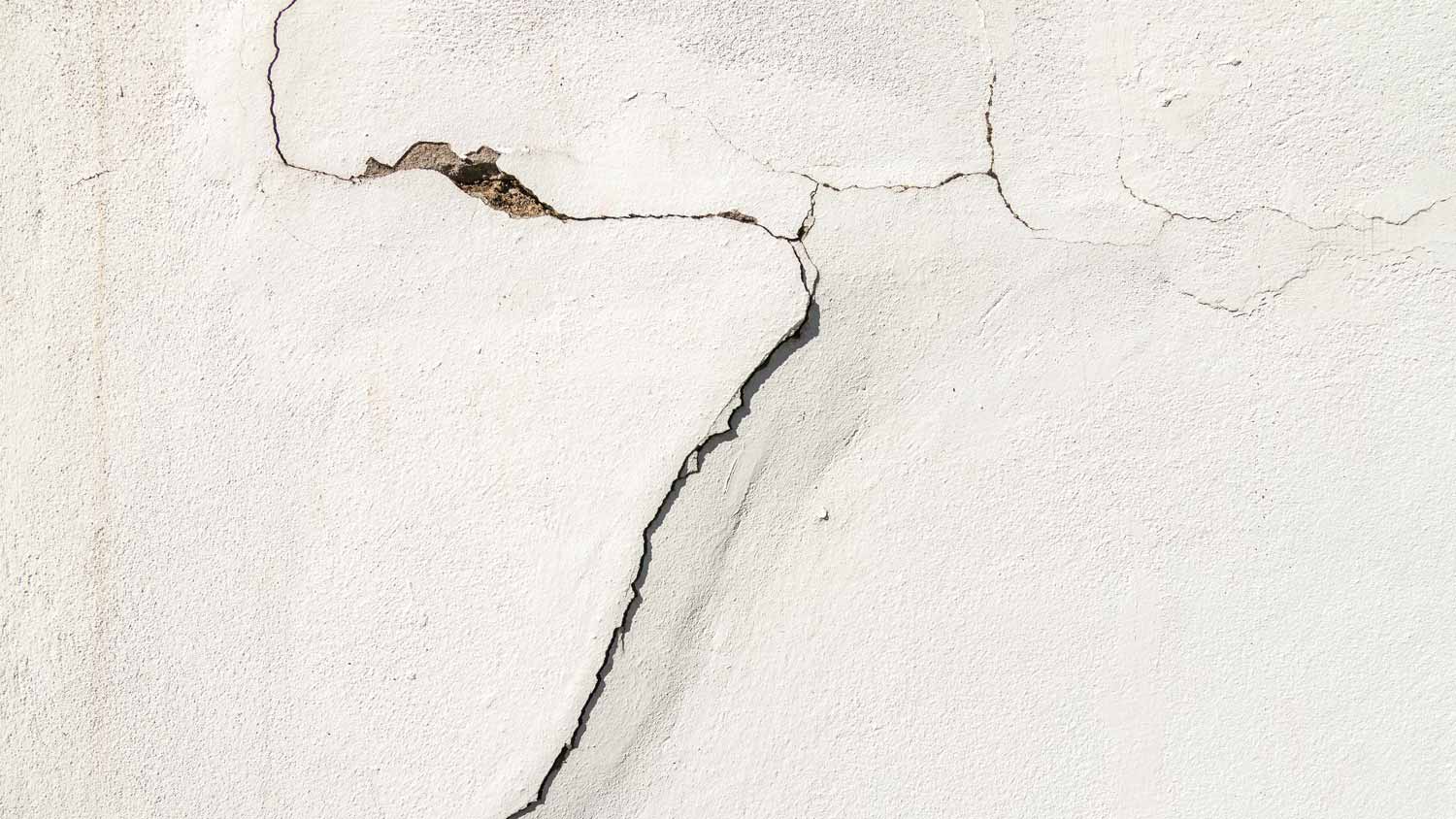
Drywall cracks that are 1/4-inch thick or wider almost always indicate foundation problems. Use a ruler or tape measure to measure the width of your crack.
Contact a drywall repair pro near you to assess your foundation and wall cracks. Waiting to fix foundation issues can lead to further damage and more expensive repairs. A pro should handle foundation work to ensure it’s done properly.
While vertical cracks can be a sign of foundation problems, horizontal or angled cracks are more indicative of underlying foundation issues. If you notice a crack that stretches horizontally across more than a few feet, you could have a shifting or sinking foundation.
Contact a drywall repair pro near you to assess your foundation and cracks. You can also fill the cracks with joint compound or chalk and paint the patch, but it’s likely the cracks will return.
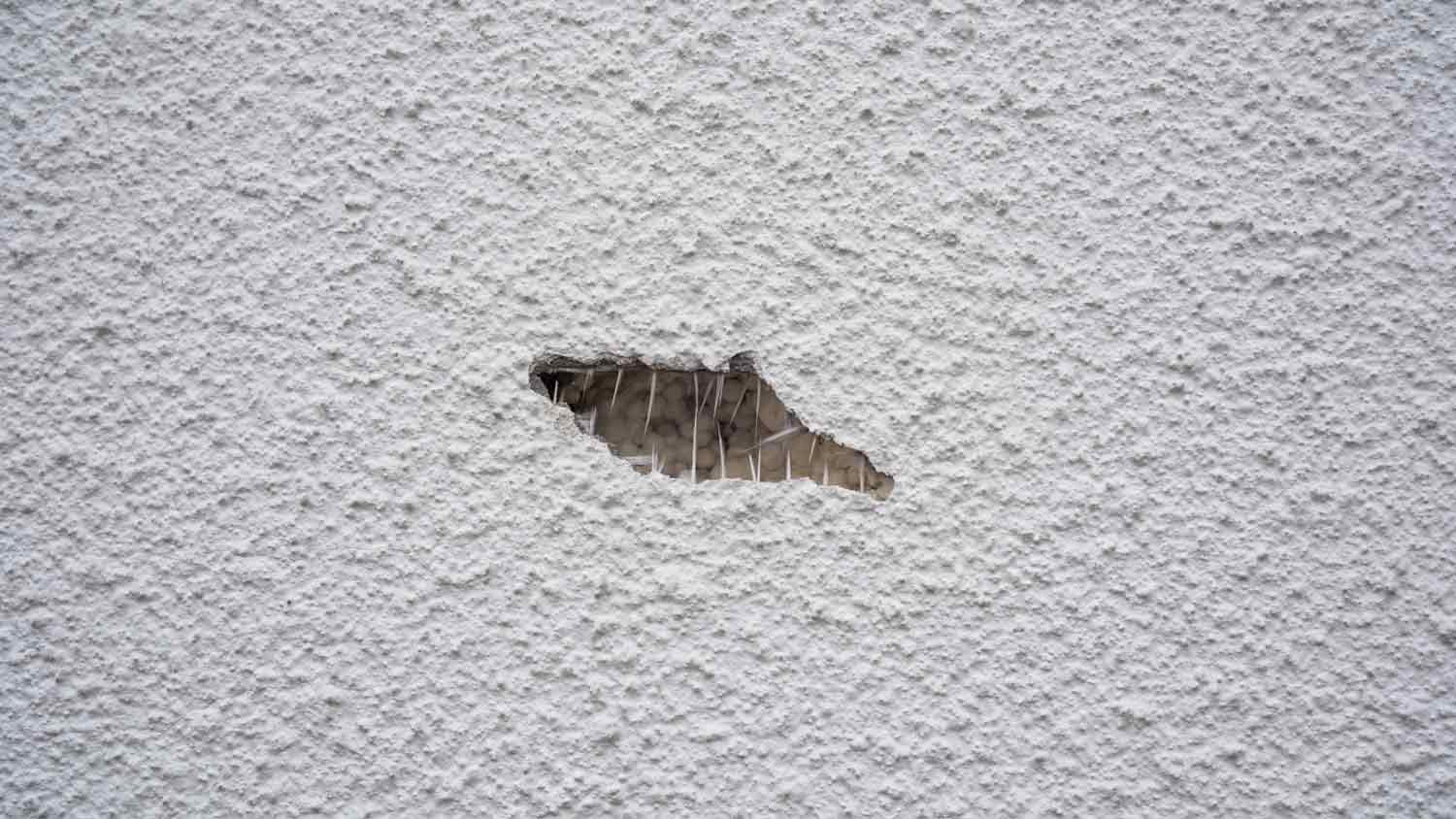
If you notice that the cracks in your drywall are getting wider over time or if one end of the crack is wider than the other, you could have a foundation issue.
Call a foundation repair pro to assess your home and decide the best route for repairing or supporting your existing foundation. Catching the problem sooner rather than later saves further damage and expenses.
Cracks often appear near the corners of windows and doors, and they don’t always mean there’s structural damage. However, if your windows are stuck in their frames or you have trouble opening and closing your doors fully, you likely have a more significant issue on your hands.
Repair minor cracks with caulk or drywall compound, but call a professional foundation repair specialist if you’re experiencing issues such as doors that won't open or close properly.
If you have a wall crack that’s caused by a gap between the ceiling and the wall or the wall and floor, it could mean that you have a foundation problem, but this isn’t always the case. Sometimes these gaps are due to normal home settling.
A gap between the wall and ceiling or the wall and floor could be a sign of a deeper issue, so be sure to check it over with a local foundation repair pro.
If the crack runs across the ceiling and down the wall, you likely have serious structural damage. The same goes for a crack that runs along the floor and up to the wall.
Contact a local foundation repair pro to tackle a more significant fix, such as installing piers to stabilize a damaged foundation.
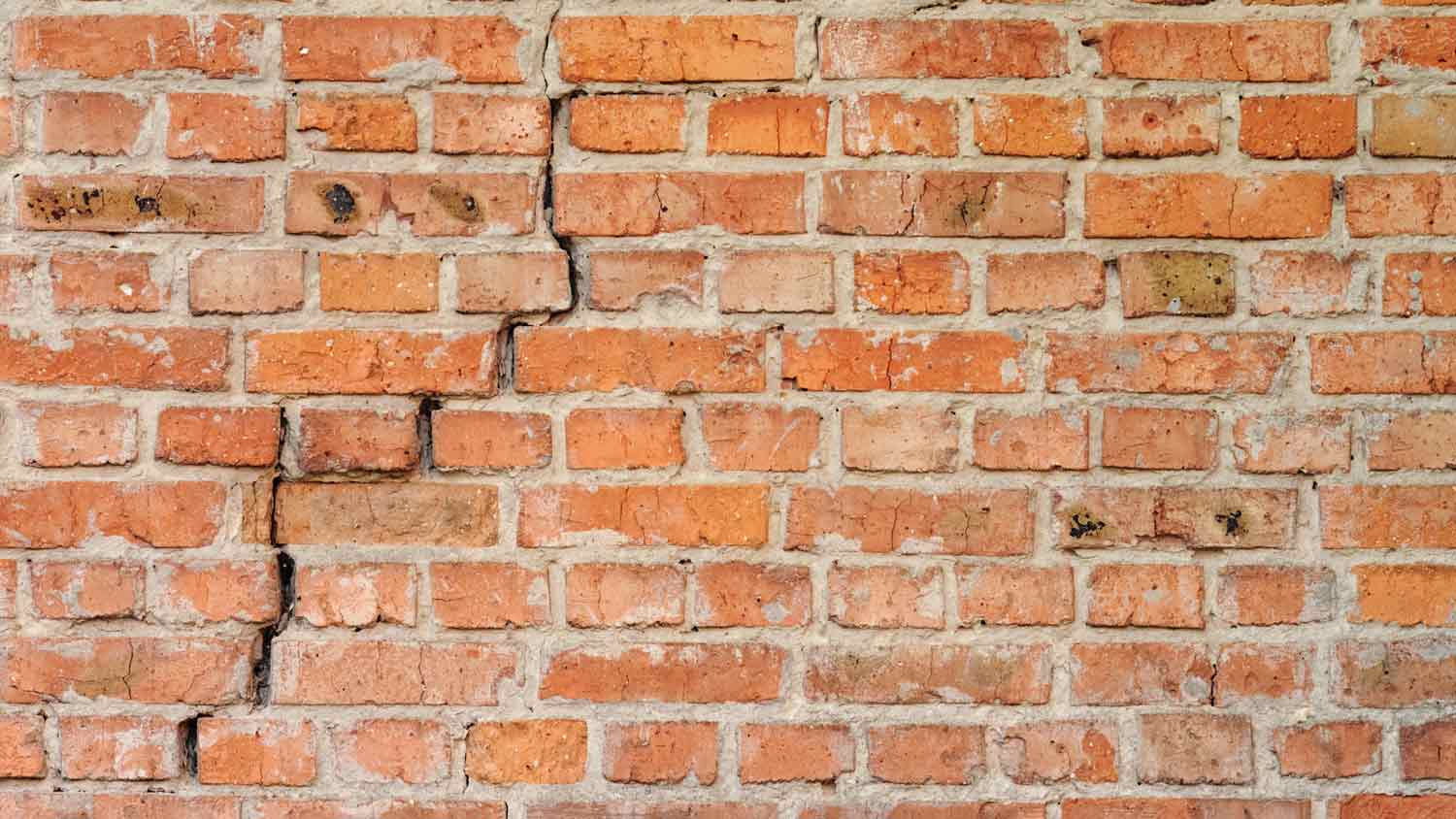
While not a drywall crack, you should be wary of cracks in the mortar of your foundation. Stair-step cracks in your brick or concrete block mortar—either on the interior or exterior of your home—indicate significant foundation settlement. Stair-step cracks follow the horizontal and vertical lines of the mortar joints.
Stair-step cracks indicate significant pressure on your foundation. Contact a local foundation repair pro right away. They can pipe in high-density polyurethane foam to deal with emergencies.
A bowing wall, often in the basement, is a clear sign of structural damage and is a cause for immediate safety concerns. A horizontal crack forms in the middle or upper portion of the wall due to the combined effects of significant soil and water forces. The wall will be visibly bowing inward at the point of the crack.
Contact a local foundation repair pro ASAP to assess the situation. In some cases, you’ll need to leave your home and find a safe place to live until the issue is addressed.
Not all cracks indicate a damaged foundation. There are other reasons for drywall cracks, including:
The wood in your framing expands and contracts in response to temperature and humidity variations, often causing minor drywall cracks. Soil also contracts and expands, putting pressure on your foundation walls. Hurricanes, tornadoes, earthquakes, and other heavy storms can also cause shifting, leading to cracks.
After construction, wood framing dries and shrinks, particularly during the first year, resulting in some cracking in the walls.
If you have water damage in your home, such as from a leaky roof, the moisture can compromise the structural integrity of your drywall. With the expansion and contraction of the material, the drywall can crack. If you suspect water damage, contact a professional water damage restoration service near you.
When concrete hardens, it can develop small cracks as a normal part of the curing process. If you have long or wide cracks in your concrete, contact a local concrete repair professional to avoid further cracking.
Improper taping and drywall mudding can cause cracks in the drywall seams. The cracks are often aesthetic and not structural. You can fix drywall cracks on your own or contact a local drywall repair pro.
Over time, all houses settle into the ground, causing hairline cracks. Some homes experience differential settlement, a phenomenon that occurs in particularly wet and soft soils, such as clay. One side of the home may sink deeper and faster than the other.
If your drywall cracks are wider than 1/4 inch, are horizontal or angled, are getting wider, or produce other issues like bowing walls or doors that don’t fully close, it’s best to call a local foundation professional immediately. All foundation repairs should be done by a professional (outside of small cracks) because DIY work can cause further structural damage, leading to even more expensive repairs.
Foundation repair costs $2,200 to $8,100, depending on the type of foundation and the extent of the issue. A pro can provide pier and beam solutions, proper drainage on your property, and pipe in high-density polyurethane foam in emergencies.
From average costs to expert advice, get all the answers you need to get your job done.

Crawl space maintenance can help improve indoor air quality and avoid structural damage. Learn how much crawl space cleaning costs and when to schedule it.

Plumbing leaks are never fun, but they’re worse when they happen inside your foundation. Use this guide to slab leak repair costs to learn what to expect.

Foundation repair costs can be tricky when you have a large repair on your hands. This guide walks through costs from small cracks to total replacement.
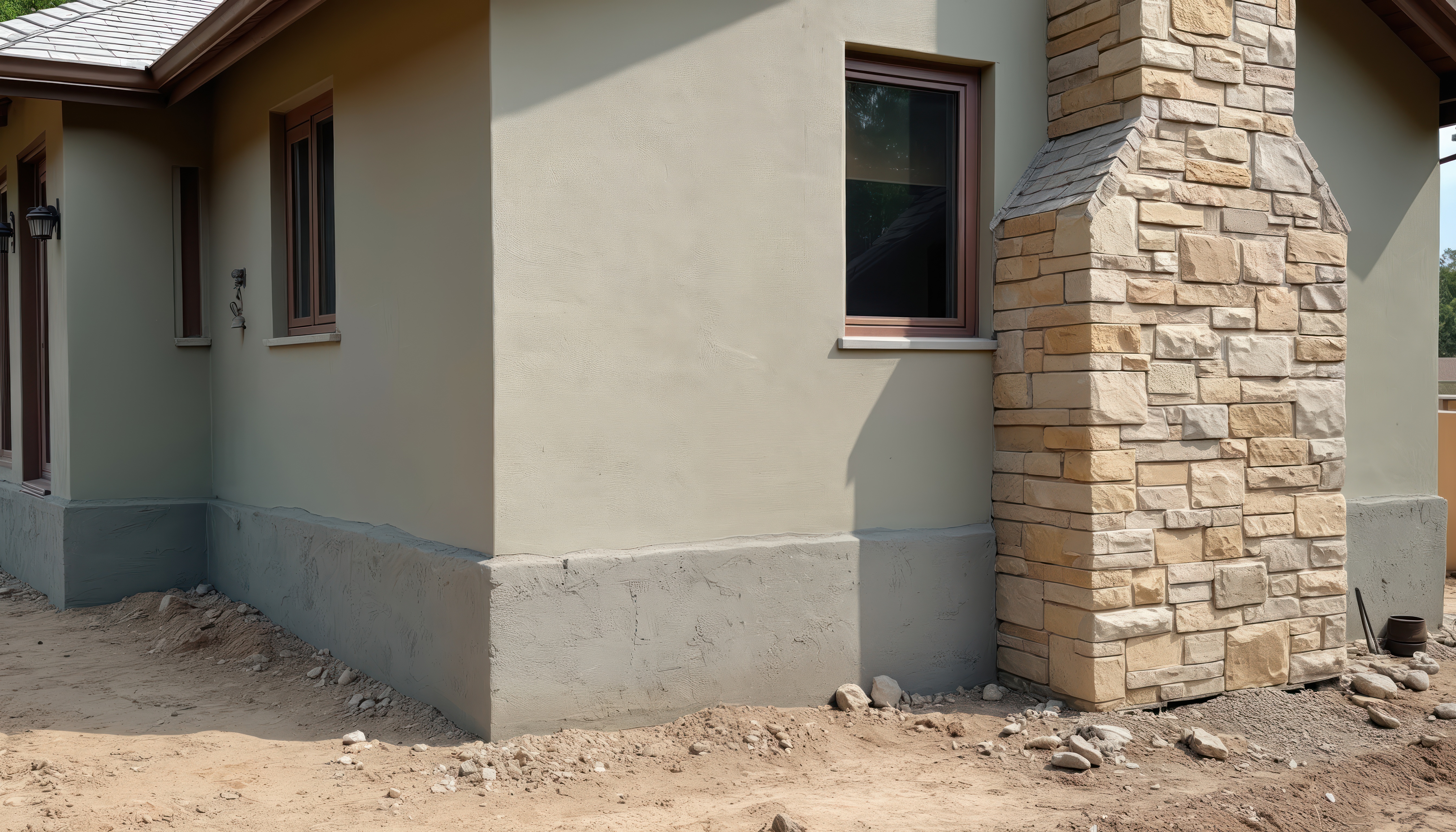
Parging can restore and protect your walls against moisture and drafts. Find out what it is, how it’s applied, and the signs your wall could use it.

Foundation repair can be an involved process. Learn how long foundation repair takes and the factors that influence repair time.
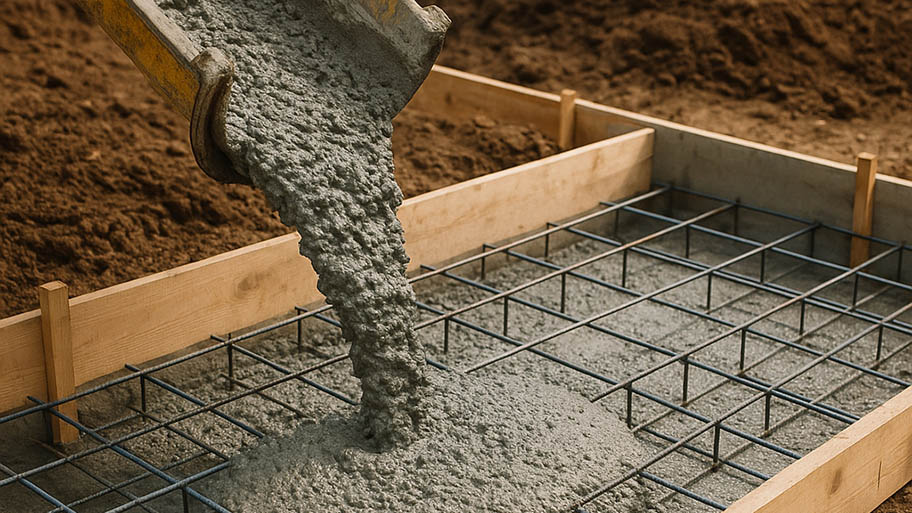
When it comes to comparing a slab vs. crawl space foundation, each has its pros and cons. Read on for a breakdown of these two foundation options.